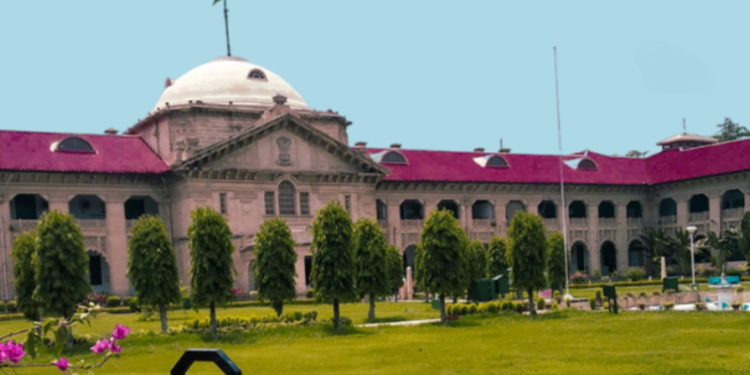The Allahabad High Court has ruled that although a legal issue fundamental to the case can be raised for the first time during appellate proceedings, its admissibility depends on the case’s specific facts.
Chief Justice Arun Bhansali and Justice Vikas Budhwar’s bench stated, “There is no dispute regarding the law’s proposition that a legal issue fundamental to the case can be raised for the first time during appellate proceedings. However, its admissibility depends on the case’s specific facts.”
The Court held that since admission constitutes the strongest evidence and the appellant’s officer, in his cross-examination, supported the claimant-respondent’s claim without challenge, no challenge could be made to the arbitral award under Section 34 or Section 37 of the Arbitration and Conciliation Act, 1996.
Background:
The claimant-respondent asserted that it had carried out various works for the appellant-objector, Gaursons Promoters Pvt. Ltd., but faced issues in the project due to agitation by villagers in 2012-13. The work was halted, and the claimant sought an extension to complete it, pointing out that the appellant’s sister concern had granted an extension and expressed satisfaction with the work done.
After the High Court appointed a sole arbitrator, the claimant filed a claim petition seeking an award of Rs. 4,23,15,030/-, along with Rs. 50 lakhs for losses. The appellant counterclaimed Rs. 4,69,62,127/-. The arbitrator awarded Rs. 2.5 crores along with 16% interest per annum from April 1, 2015, until the award was made, and interest thereafter at the rate specified in Section 31(7)(b) of the Act. Additionally, a cost of Rs. 12 lakhs was awarded to the claimant.
The appellant’s challenge to the award was dismissed by the Presiding Officer, Commercial Court, Gautam Budh Nagar. The appellant then approached the High Court under Section 37 of the Act.
Arguments:
The appellant’s counsel argued that the award was not based on evidence and cited inconsistencies in the amounts paid by the appellant. It was contended that although this ground was not raised before the Commercial Court, it constituted a legal ground showing patent illegality, which could be raised under Section 37.
The respondent’s counsel argued that Section 34 does not permit the Commercial Court to rehear or reevaluate evidence, and the inconsistencies in the appellant’s figures undermined its case. They further argued that the failure to dispose of the application seeking the production of the claimant’s ledger was a mere irregularity, not a patent illegality under Section 34(2A).
Verdict:
The Court observed that the Arbitration and Conciliation Act, 1996 aimed to provide a more accessible and efficient dispute resolution mechanism and noted that Sections 34 and 37 were drafted to limit judicial intervention in arbitral proceedings.
It was noted that there was no evidence showing the appellant had deducted statutory TDS, and discrepancies in the amounts cited by the appellant were evident. The Court found that the appellant’s inconsistent stance throughout the proceedings did not inspire confidence, especially when there was no plausible explanation offered.
The Court also observed that although the burden of proof lay with the claimant, the appellant’s clear admissions during cross-examination could not be used to challenge the award on grounds of patent illegality.
In conclusion, the Court held that there was no legal issue fundamental to the case, given the strength of the evidence, the appellant’s inconsistent stance, and the absence of challenges to various aspects of the award.

















